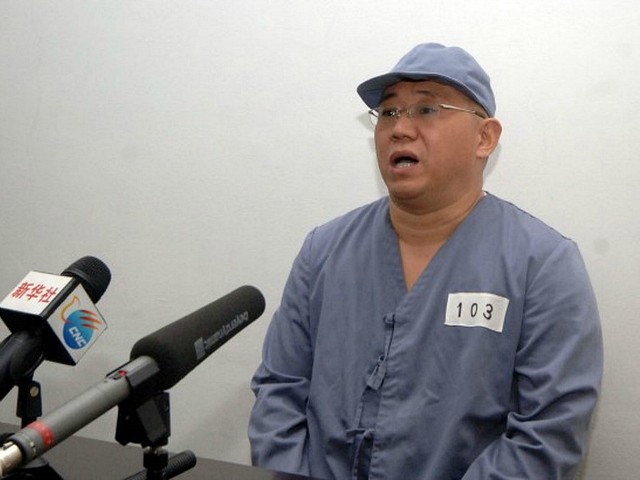The government of North Korea has published a scathing editorial demanding that Kenneth Bae, an American Christian missionary freed after being sentenced to 15 years hard labor, “commit suicide” following the publication of a book in which he details his life in a North Korean labor camp.
Pyongyang’s Korean Central News Agency (KCNA) published an article Monday calling Bae officially “cursed” and demanding he take his own life following the publication of his book, Not Forgotten, and subsequent interviews in which he has called North Korea’s communist Juche philosophy fragile and morally bankrupt.
The North Korean government appears especially concerned that Bae has publicly stated he seeks to work with NGOs in South Korea to find ways to smuggle information about the outside world into North Korea. “Bae talked rubbish that ‘he is planning to set up a non-governmental organization for the fellow countrymen in the north and carry out projects helpful to the poor people in the north and defectors from the north,'” the KCNA article reads. “It is ridiculous, indeed, for Bae to be busy with the moves for establishing a non-governmental organization for some people as if he were a big philanthropist. In other words, he revealed his intention to persist in his hostile acts against the DPRK.”
The article quotes Bae’s forced confessions and apologies written while imprisoned in North Korea and accuses him of making “a U-turn” after returning to the United States, “going busy hatching plots with the group of Satan falsifying facts [sic]. He is none other than Judas.”
“Bae Jun Ho has no option but to commit suicide,” the article concludes. In addition to calling Bae “Judas,” the article describes the missionary as “human scum” and “half wit.”
It ends with a threat to no longer negotiate with the government of the United States regarding two other U.S. citizens currently imprisoned in the communist country.
Reuters notes that the two other Americans currently imprisoned in North Korea are student Otto Warmbier, serving a 15-year sentence for taking down a propaganda poster, and Kim Dong Chul, a Christian missionary serving a ten-year sentence for “crimes against the state.”
North Korea appears to be lashing out at Bae due to his unusual outspokenness following his return to the United States, after becoming the U.S. citizen to serve the longest time in a North Korean prison in history. In his book, Bae asserts that he had multiple supernatural interactions with both angels and demons in his prison, and that, on one occasion, he held the hand of the Holy Spirit. He also repeatedly describes Pyongyang’s government as fragile and terrified of the power of Christianity.
North Korean officials, he writes, “understand that if they allow the message of Jesus to spread, their government will collapse, along with every aspect of their society.”
In an interview with the Unification Media Group published last week, Bae also stresses the importance of flooding North Korea with information on the outside, to inspire a revolt against dictator Kim Jong-un. The experience of being imprisoned, he said, “made me really want to let them know about religion even to the smallest degree and that so many people (around the world) are praying for them and have great interest in them.” He described North Koreans as “brainwashed” but eager to be released from their intellectual prison once exposed to Christianity.
North Korea’s government has escalated its incendiary rhetoric against the United States and South Korea this year, following an illegal nuclear weapon test in January. Pyongyang has repeatedly threatened a “preemptive” nuclear strike on the United States — particularly Manhattan and Washington, D.C. — while filming propaganda videos using the ethnic white-American sons of a Korean War defector who remains loyal to Kim Jong-un.
Most recently, intelligence officials in both Seoul and Washington have warned that satellite evidence seems to indicate increased activity at the Yongbyon nuclear facility, potentially signaling that the military has begun recycling plutonium to use in the construction of new nuclear bombs.
